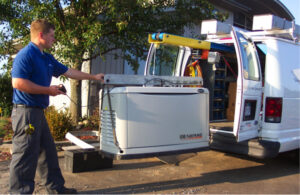New York homeowners: looking to protect your home from power outages without the upfront cost of purchasing a generator? Generator leasing with Home Power Systems offers an affordable way to secure standby generators for Rochester, Syracuse, and Buffalo residents. Whether you're dealing with harsh winter storms, overloaded summer grids, or just want peace of mind, a lease option helps you stay protected without making a large financial commitment. Here’s how leasing a generator can make sense for your home and your budget.

Financial Benefits of Generator Leasing
Leasing a generator gives you control over your budget while still offering full protection. Home Power Systems works with families across upstate New York to make standby power more accessible. Here are some key financial benefits:
- Low upfront cost: You don’t need a large down payment. Get dependable backup power without a major initial investment.
- Predictable monthly payments: Know what to expect each month with consistent lease terms.
- Access to high-quality equipment: Leasing gives you access to premium systems without the cost of full ownership.
- No depreciation concerns: Leasing avoids long-term value loss and equipment aging.
- Possible tax deductions: Depending on how the generator is used, your payments may be deductible. Check with a tax advisor.
- Easy upgrades: You can explore new technology or a different setup at the end of your lease.
What You Can Expect With a Generator Lease
Leasing a generator is straightforward, but it’s helpful to know what’s involved. Here’s what you can expect during and after the process.
What’s the lease process?
After you contact Home Power Systems, we’ll schedule a visit to assess your home’s needs. Based on that, we’ll recommend a properly sized system, walk through your lease terms, and begin the installation process. Most systems are installed in just a day or two, depending on the setup.
What happens at the end of the lease?
You’ve got options. When your lease ends, you can return the generator, renew your lease, or choose to buy it out. If you’re happy with the equipment and want to keep it, we’ll offer a fair market value quote for purchase. Some homeowners take this opportunity to upgrade to a newer model, especially if their power needs have changed or if new technology has become available. Whether you continue leasing, make a purchase, or explore a different setup, we’ll walk you through each path and help you make the decision that fits your home best.
Is my monthly rental payment tax deductible?
Possibly. If the generator supports a home office or business use, you may be able to deduct part of the cost. It’s best to ask a qualified tax professional for guidance.
Who do I turn to for warranty service?
You call us. As your local partner, Home Power Systems handles warranty service, repairs, and maintenance throughout the lease. We’re based right here in New York and ready to respond when you need us.
What interest rate am I paying?
Generator leasing isn’t the same as a loan, so there’s no traditional interest rate. Instead, your monthly payment covers use of the equipment and any included services. Everything is laid out clearly up front, and there are no surprises.
When do my lease payments start?
Payments begin once your system is fully installed and ready to run. You won’t pay anything until your generator is active and protecting your home.
Conclusion
In places like Rochester, Buffalo, and Syracuse, having a standby generator isn’t a luxury. It’s a smart way to keep your family safe, your home functional, and your peace of mind intact when the power goes out.
Leasing makes that protection easier to afford. With low upfront costs, reliable monthly payments, and local support whenever you need it, Home Power Systems is here to help. We’ve worked with homeowners across New York to deliver dependable power without the financial strain of a full purchase.
Have questions? Call us today at (716) 451-3078 to learn more about leasing a generator. We’ll explain your options, help you decide what fits your home, and make sure you’re ready before the next outage hits.



